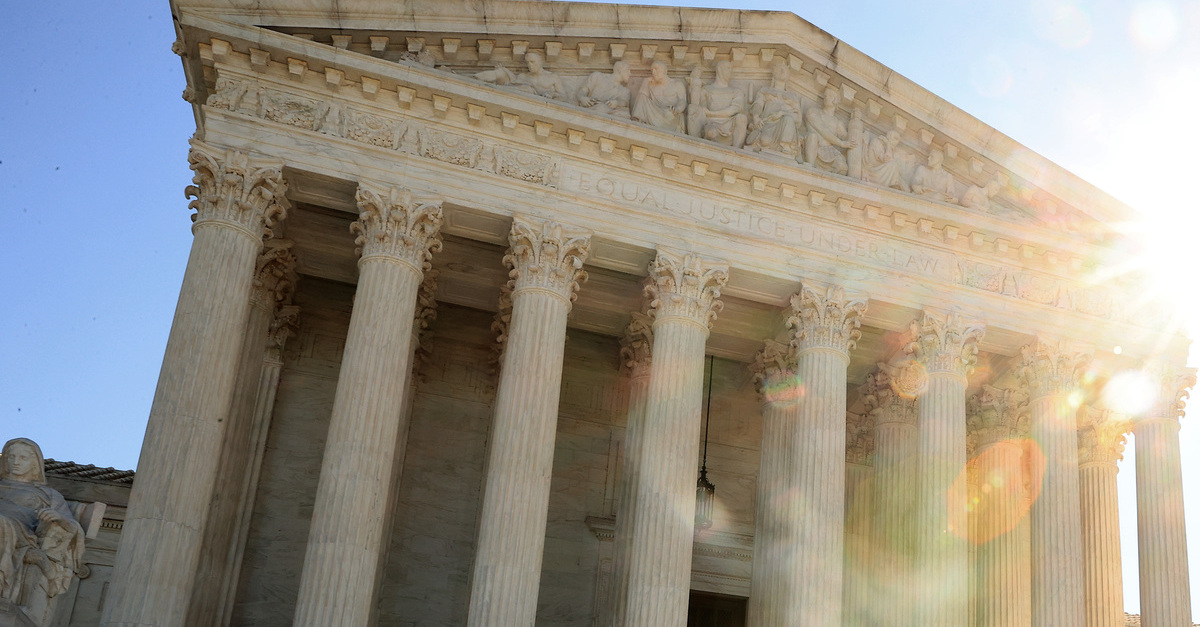
The Supreme Court of the United States unanimously rejected Mississippi’s claim against Tennessee for using too much of its groundwater.
In this case, Mississippi claimed Tennessee should have prevented Memphis Light, Gas & Water Division from pumping groundwater from the Memphis Sand Aquifer over the state line. It argued that Tennessee’s “knowing, intentional, and forcible pumping of groundwater” violated Mississippi’s sovereignty and constitutes a wrongful taking of the state’s “most valuable natural resource.” All nine justices, however, disagreed.
SCOTUS had original jurisdiction over the case because it involved a dispute between states. In a 12-page opinion authored by Chief Justice John Roberts, the court unanimously ruled that the judicial remedy of “equitable apportionment” applies to the dispute. Equitable apportionment allows states that share a body of water to have co-equal rights to make reasonable use of that water, so long as the water isn’t wasted.
Roberts began by issuing a brief primer on history and hydrology, beginning with the 1886 discovery of the aquifer. Roberts explained that “To extract water from an aquifer, people drill wells,” and that “Pumping does not just bring water to the surface; it also lowers water pressure at the site of the well.” These resulting “cones of depression,” elaborated Roberts, have affected the flow of groundwater to Mississippi — but not quite as much as Mississippi says they have.
Roberts seemed particularly annoyed by Mississippi’s argument, pointing out that, “Mississippi claims an absolute ‘ownership’ right to all groundwater beneath its surface—even after that water has crossed its borders,” and that, “it seeks at least $615 million in damages.” Generally, in cases involving water rights, the aggrieved state claims that the offending state simply used more than its fair share of water. In this dispute, however, Mississippi’s claim is based on state sovereignty, as opposed to fairness.
Roberts gave a shout-out to Eugene E. Siler, Jr., Senior Judge of the U.S. Court of Appeals for the Sixth Circuit, who “ably discharged his duties” as the court-appointed Special Master in the case. Siler concluded that as in other water cases, equitable apportionment was the right way to resolve this dispute. The high court was happy to defer to his recommendation. SCOTUS has already applied equitable apportionment to disputes over rivers and streams, interstate river basins, and pumped groundwater. “We have even applied the doctrine to anadromous fish—such as Chinook salmon and steelhead trout,” noted Roberts in support of the decision to apply the doctrine in this case.
Turning to the Magnolia State’s contention that “it has sovereign ownership of all groundwater beneath its surface,” Roberts bluntly wrote, “We see things differently.” When we’re talking about water that flows between several states, explained the Chief Justice, “each one ‘has an interest which should be respected by the other.'”
As if reprimanding Mississippi for its single-minded insistence on sole ownership, Roberts pointed out that despite the fact that equitable apportionment is the usual remedy for water disputes, Mississippi decided to proceed entirely on the basis of tort law. Therefore, instead of allowing Mississippi leave to amend its complaint to make a more tenable claim, SCOTUS dismissed the case entirely, writing:
As Mississippi has neither sought leave to amend nor tendered a proposed complaint seeking equitable apportionment, we have no occasion to determine how these and other pertinent principles might apply.
The dismissal was no surprise to those who heard Justice Sonia Sotomayor‘s line of questioning during oral arguments.
“You’ve been litigating this case for over 16 years,” she remarked during the October proceedings. “You come here in 2010 and we tell you the same thing. Now this is the third time.”
“When is enough enough?” Sotomayor asked.
The justices have now answered that question, putting an end to Mississippi’s case.
[image via Chip Somedevilla/Getty Images]
Have a tip we should know? [email protected]